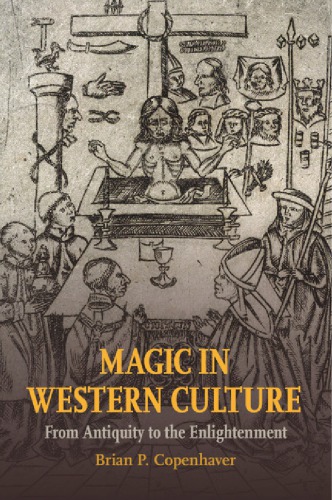

Most ebook files are in PDF format, so you can easily read them using various software such as Foxit Reader or directly on the Google Chrome browser.
Some ebook files are released by publishers in other formats such as .awz, .mobi, .epub, .fb2, etc. You may need to install specific software to read these formats on mobile/PC, such as Calibre.
Please read the tutorial at this link. https://ebooknice.com/page/post?id=faq
We offer FREE conversion to the popular formats you request; however, this may take some time. Therefore, right after payment, please email us, and we will try to provide the service as quickly as possible.
For some exceptional file formats or broken links (if any), please refrain from opening any disputes. Instead, email us first, and we will try to assist within a maximum of 6 hours.
EbookNice Team

Status:
Available4.6
7 reviewsThe story of the beliefs and practices called ‘magic’ starts in ancient Iran, Greece, and Rome, before entering its crucial Christian phase in the Middle Ages. Centering on the Renaissance and Marsilio Ficino – whose work on magic was the most influential account written in pre-modern times – this groundbreaking book treats magic as a classical tradition with foundations that were distinctly philosophical. Besides Ficino, the premodern story of magic also features Plotinus, Iamblichus, Proclus, Aquinas, Agrippa, Pomponazzi, Porta, Bruno, Campanella, Descartes, Boyle, Leibniz, and Newton, to name only a few of the prominent thinkers discussed. Because pictures play a key role in the story of magic, the book is richly illustrated.
Brian P. Copenhaver is Distinguished Professor and Udvar-Hazy Chair of Philosophy and History at the University of California, Los Angeles. He is a fellow of the American Academy of Arts and Sciences and past president of the Journal of the History of Philosophy; he is also a member of the council of the Istituto Nazionale di Studi sul Rinascimento in Italy. He serves or has served on the boards of Rinascimento, Renaissance Quarterly, Annals of Science, the Journal of the History of Ideas, Early Science and Medicine, the International Archives of the History of Ideas, and the I Tatti Renaissance Library. The most recent of his eleven books is Peter of Spain’s Summaries of Logic (2014, with Calvin Normore and Terry Parsons).